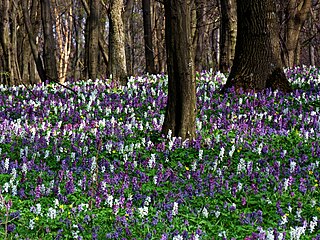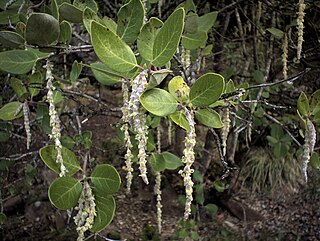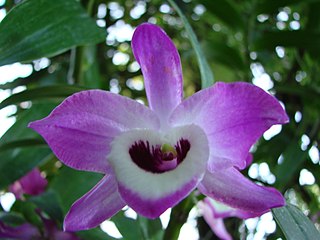Occurrence

The alkaloid tabernanthin is found in Tabernaemontana laurifolia . [2] The alkaloids voacangin and voacristin were isolated from Voacanga africana . [3]
Apocynaceae alkaloids are natural products found in the plant family of the dogbane family ( Apocynaceae ). [1]

The alkaloid tabernanthin is found in Tabernaemontana laurifolia . [2] The alkaloids voacangin and voacristin were isolated from Voacanga africana . [3]
Representatives include tabernanthine, voacangine and voacristine. [4] [5]
Plant parts of Voacanga africana are utilized by African natives for various purposes, including as hallucinogens, in cultic ceremonies, and as aphrodisiacs. [6]
A decoction made from the stem or root bark is employed for the treatment of mental disorders and as an analgesic. The sap is applied to cavities in teeth. In southeastern Nigeria, Voacanga africana is an integral part of numerous healing rituals. [7]

Apocynaceae is a family of flowering plants that includes trees, shrubs, herbs, stem succulents, and vines, commonly known as the dogbane family, because some taxa were used as dog poison. Members of the family are native to the European, Asian, African, Australian, and American tropics or subtropics, with some temperate members. The former family Asclepiadaceae is considered a subfamily of Apocynaceae and contains 348 genera. A list of Apocynaceae genera may be found here.

Voacangine is an alkaloid found predominantly in the root bark of the Voacanga africana tree, as well as in other plants such as Tabernanthe iboga, Tabernaemontana africana, Trachelospermum jasminoides, Tabernaemontana divaricata and Ervatamia yunnanensis. It is an iboga alkaloid which commonly serves as a precursor for the semi-synthesis of ibogaine. It has been demonstrated in animals to have similar anti-addictive properties to ibogaine itself. It also potentiates the effects of barbiturates. Under UV-A and UV-B light its crystals fluoresce blue-green, and it is soluble in ethanol.

Voacanga africana is a small tree native to tropical Africa belonging to the family Apocynaceae that grows to 6 m (20 ft) in height and bears leaves that are up to 30 cm (12 in) in length. The yellow or white flowers are succeeded by paired, follicular, dehiscent fruit with a mottled green exocarp and a pulpy, yellow mesocarp surrounding the seeds. The plant contains alkaloids acting as CNS depressants and hypotensives

Ibogamine is an anti-convulsant, anti-addictive, CNS stimulant alkaloid found in Tabernanthe iboga and Crepe Jasmine. Basic research related to how addiction affects the brain has used this chemical.

Tabernanthine is an alkaloid found in Tabernanthe iboga.

Voacamine, also known under the older names voacanginine and vocamine, is a naturally occurring dimeric indole alkaloid of the secologanin type, found in a number of plants, including Voacanga africana and Tabernaemontana divaricata. It is approved for use as an antimalarial drug in several African countries. Voacamine exhibits cannabinoid CB1 receptor antagonistic activity.

Steroidal alkaloids have the basic steroidal skeleton with nitrogen-based functional groups attached to the skeleton. More specifically, they are distinguished by their tetracyclic cyclopentanoperhydrophenanthrene skeleton that marks their close relationship with sterols. They fall in two major categories: Solanum alkaloids and Veratrum alkaloids. A Steroidal alkaloid has also been found in Chonemorpha fragrans, 'chonemorphine' was used to treat intestinal infections in Wistar rats..

Tabersonine is a terpene indole alkaloid found in the medicinal plant Catharanthus roseus and also in the genus Voacanga. Tabersonine is hydroxylated at the 16 position by the enzyme tabersonine 16-hydroxylase (T16H) to form 16-hydroxytabersonine. The enzyme leading to its formation is currently unknown. Tabersonine is the first intermediate leading to the formation of vindoline one of the two precursors required for vinblastine biosynthesis.

Quinolizidine alkaloids are natural products that have a quinolizidine structure; this includes the lupine alkaloids.

Tabernaemontanine is a naturally occurring monoterpene indole alkaloid found in several species in the genus Tabernaemontana including Tabernaemontana divaricata.

Dregamine is a naturally occurring monoterpene indole alkaloid found in several species in the genus Tabernaemontana including Ervatamia hirta and Tabernaemontana divaricata.

Vobasine is a naturally occurring monoterpene indole alkaloid found in several species in the genus Tabernaemontana including Tabernaemontana divaricata.

Voacristine is a indole alkaloid occurring in Voacanga and Tabernaemontana genus. It is also an iboga type alkaloid.

Voacanga grandifolia is a plant native to Malesia and Queensland. It is an introduced species in India.

The benzylisoquinoline alkaloids are natural products that can be classified as isoquinoline alkaloids and are derived from benzylisoquinoline. They also include the benzyl(tetrahydro)isoquinoline alkaloids.

Indolizidine alkaloids are natural products from various alkaloid groups whose structure can be derived from indolizidine.

Corydalis Alkaloids are categorized as natural products of the isoquinoline alkaloid type.

Diterpene alkaloids are natural products of the terpene alkaloid type.

Dendrobium alkaloids are natural products and so-called pseudoalkaloids.

The pyrrolidine alkaloids are natural products chemically derived from pyrrolidine.